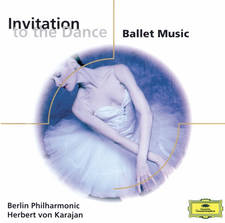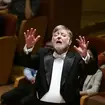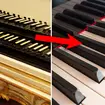The Full Works Concert – Friday 16 August: Mozart
Tonight Jane Jones showcases five masterpieces from the pen of the Great Composer, Wolfgang Amadeus Mozart.
Wolfgang Amadeus Mozart was arguably the most gifted musician in the history of classical music. His inspiration is often described as 'divine', but he worked assiduously, not only to become the great composer he was, but also a conductor, virtuoso pianist, organist and violinist. Mozart's music embraces opera, symphony, concerto, chamber, choral, instrumental and vocal music, revealing an astonishing number of imperishable masterpieces.
Mozart wrote 27 piano concertos. The Piano Concerto No. 23 in A major was finished, according to Mozart's own catalogue, on 2 March 1786, around the time of the premiere of The Marriage of Figaro. It was one of three subscription concerts given that spring and was probably played by Mozart himself at one of these. The second movement in particular is one of Mozart's most ethereal and beautiful compositions.
The Laudate Dominum are the opening words, in Latin, of the shortest Psalm. They have been set to music by a number of composers. This sublimely spiritual piece is sung tonight by Emma Kirkby.
Mozart completed between his third horn concerto between 1784 and 1787. It was written as a friendly gesture towards the horn player Joseph Leutgeb and Mozart probably didn't consider it a particularly important work since he failed to enter it into the autograph catalogue of his works. The original score is stored in the British Library in London.
Mozart's Symphony No.40 in G minor is sometimes referred to as the 'Great G minor symphony' to distinguish it from the 'Little G minor symphony'. It was written during an exceptionally productive period of just a few weeks in 1788, when Mozart also completed the 39th and 41st symphonies.
Tonight's concert ends with Mozart's Violin Concerto No.3 in G major, written when Mozart was only 19. The five violin concertos marked a turning point in Mozart’s career, during which he found his mature style, and exhibited a level of genius that would characterize the bulk of his compositions for the rest of his life. The last three, beginning with this work in G Major, are the best-known. Here Mozart strikes the perfect balance between virtuosic display and thematic content. Tonight, Itzhak Perlman directs the Berlin Philharmonic Orchestra from the violin.
Mozart: Piano Concerto No.23 in A major
Piano: Alfred Brendel
Neville Marriner conducts the Academy of St. Martin in the Fields
Mozart: Laudate Dominum
Soprano: Emma Kirkby
Christopher Hogwood conducts the Academy of Ancient Music and the Winchester Cathedral Choir and College Quiristers
Mozart: Horn Concerto No.3 in E flat major
Horn: Stephen Stirling
Andrew Watkinson conducts the City of London Sinfonia
Mozart: Symphony No.40 in G minor
Claudio Abbado conducts Orchestra Mozart
Mozart: Violin Concerto No.3 in G major
Violin Concerto No.3 in G major
James Levine conducts Vienna Philharmonic Orchestra
Violin: Itzhak Perlman













